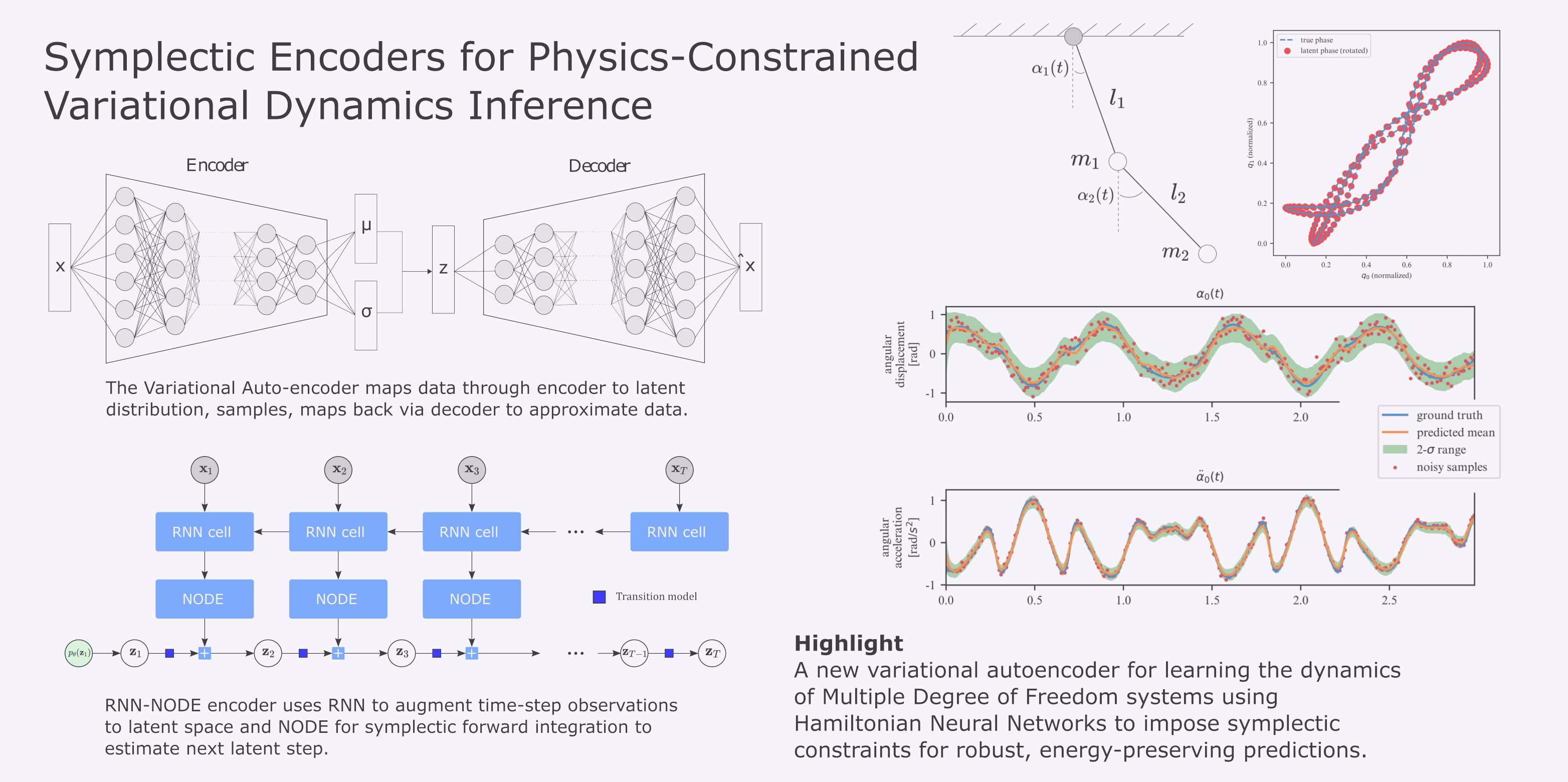Symplectic Encoders for Dynamics
New publication led by Kiran Bacsa

In this work, led by Kiran Bacsa (SEC / SMM group), with Zhilu Lai (HKUST GZ), Wei Liu (SEC / NUS), Michael Todd (UCSD) and Eleni Chatzi (SMM group), we present a new Variational Auto-Encoder (VAE) with physical constraints capable of learning the dynamics of Multiple Degree of Freedom (MDOF) dynamic systems. In addition to delivering robust trajectory predictions under noisy conditions, this model is capable of learning an energy-preserving latent representation of a dynamical system.
Gaussian State-Space Models (GSSMs), including Deep Markov Models (DMMs), demonstrate leading performance for modeling latent variables in stochastic systems. Nevertheless, these data-driven approaches are insufficient in incorporating physical constraints necessary for extracting meaningful latent representations in the presence of noise when modeling dynamic systems.
The integration of physical constraints into neural networks has emerged as a prominent research area in machine learning. Many models concentrate on modeling the flow dynamics of systems, such as Neural Ordinary Differential Equations (NODEs), which utilize neural networks to estimate the forward integration step of the governing equations. Simultaneously, Hamiltonian Neural Networks (HNNs) incorporate energy-preserving (i.e., symplectic) constraints into the neural network, which prevents the predicted dynamics from diverging to unrealistic trajectories.
In our methodology, we postulate that our data is a random variable generated by a latent physical process which motivates our use of Variational Inference to learn a generative model. We choose the DMM as our generative model to enforce a Markov property which holds true globally for linear systems and locally for nonlinear systems. We use a NODE as our inference network, which biases the model to learn the flow of a dynamical system governed by an ODE. We can enforce additional conditions on the type of ODE that is learned. In our work, we choose to enforce symplectic constraints on the forward integration step to imbue our model with energy-preserving properties.
This is a collaborative work between the Future Resilient Systems lab at the Singapore-ETH Centre and the SMM group.
read more on external page Volume 13 of (nature) Scientifc Reports